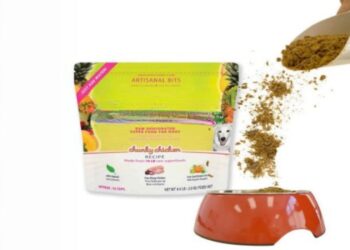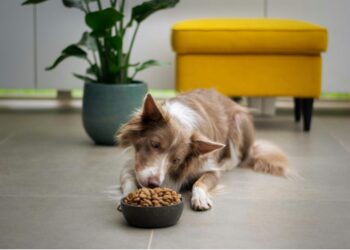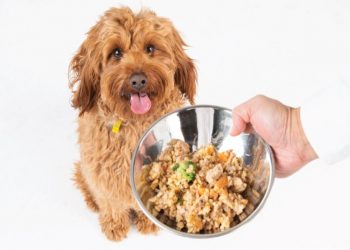Chickens can eat or not all the things that humans eat. Kitchen waste, such as leftover fruit peels, leftover cooked rice, and vegetable waste, can be a good addition to chickens’ food, but one must be selective in the choice of waste that goes to the chickens. The question is often what is allowed and what is not. What about meal leftovers? And chickens can eat old vegetables or fair-priced fruit?
Laying pellet
The laying pellet is actually the basic feed for chickens. A lot of research has been done into the nutritional needs of laying hens to keep egg production optimal. This knowledge was used to make laying pellets. Laying pellets contain legumes, grains, seeds, and vitamins, and minerals.
The feed is high in protein and provides sufficient energy for the chicken. In addition, it contains all the vitamins, minerals, and other nutritional values that a laying hen needs. Laying pellets can therefore be given unlimitedly.
Roosters, on the other hand, do not necessarily need laying pellets. It does not hurt if your rooster also eats the laying pellets, but it is recommended to supplement this with other food such as grains because laying pellets contain a bit more calcium that a rooster can’t do anything with.
grain mix chickens can eat
Grains are like sweets for chickens. They love to eat and therefore chickens can eat too much of it quickly. A grain mix often consists mainly of corn and wheat. Chickens often find corn very tasty and it gives a lot of energy. 
But because maize is low in protein, it is not suitable to give much of this. Wheat is rich in protein and a combination of corn and wheat can therefore form a good basis for the chicken.
To complete a cereal diet, a supplement with legumes and insects is recommended, because these products contain a lot of proteins and vitamins. In contrast to laying pellets, grains must be dosed to prevent overeating and thus overweight chickens.
Grit and stomach gravel
Grit is a good source of calcium for chickens. It is therefore good to always have some grit in the chicken coop, even if you give laying pellets. Furthermore, chickens need stomach grit to digest the feed. The stones remain in the stomach for some time and grind the food, as it were. Grit and stomach grit are available in mixtures.
kitchen waste
Chickens eat almost anything. Kitchen waste can be a good and versatile addition to the normal diet for chickens. Leftover remains of vegetables, fruit, and grains such as rice, apple peels, and broccoli stems are a deliciously varied meal.
In addition, it reduces waste. But not everything can be given. Some products are not good for chickens. Too much kitchen waste is also not good for chickens. Chickens need a balanced diet and kitchen waste often has too few nutritional values.
Reading suggestions; Taking care of chickens chicks
It must be taken into account that a chicken is not a waste bin. Rotten and moldy products can make the chickens sick. Therefore, be selective when giving kitchen waste.
Meat Chickens can eat or not
Meat contains a lot of proteins and can therefore be a good addition for the chicken during a molting period. Since the BSE crisis, all animal products have been removed from the laying pellets, which means that chickens consume less animal protein.
The animal proteins can be supplemented by feeding chickens can eat, for example, mealworms, maggots, or other insects. An easy and inexpensive way to supplement is to give cat food. However, cat food is sometimes a bit saltier and should therefore be given in moderation.
Chickens can eat and can’t eat this
In the table below you will find what chickens can and cannot eat.
| Food | Chickens can eat this | Chickens are not allowed to eat this |
|---|---|---|
| Plants | All plants that are not poisonous such as: Chickweed Nettles Dandelions Sorrel Red clover | Poisonous Plants: Bracken henbane Buttercup Cow Parsley Bryony Henrik Jacob groundsel Lily Privet Narcissus Monnikskap Hellebore Ponytail Foxglove linaria Belladonna Euphorbia Potato sprouts White Clover Trefoil Field Honey Clover Long grass, it may be in the craw of the poultry form a ball which they can choke |
| Vegetables | Cucumber Tomatoes Zucchini Broccoli Red cabbage Sprouted vegetables Endive Spinach Fennel Legumes Lettuce Asparagus Boiled potato Carrot Beetroot Celery Cauliflower Kale Celeriac Pak choi Pumpkin Radish Brussels sprouts Chicory | Raw potato Potato skins Vegetable or fruit with mold or rotten spots Leeks, onion and garlic, this will give a bad taste to the eggs |
| Fruit | Apple and apple peels Melon Strawberries Berries Raspberries Kiwi Mango Papaya Peaches Nectarines Pear Plums Grapes | Banana peels Citrus fruits, this has a negative effect on the laying Avocado peels and avocado seeds Rhubarb Moldy or rotten fruit Kiwi peels |
| Seeds and grains | Rice Corn Wheat Linseed Barley Hemp seed Raw unroasted seeds and nuts | Uncooked rice, which can absorb moisture in the stomach and expand Bread in large quantities Salted nuts or seeds |
| Other | Fresh meat Insects Sheep fat Shells and stones Buttermilk Apple cider vinegar | Chocolate and other sweets Too much meat Bones Eggs or eggshells, this allows chickens to eat their own eggs Cheese, this is too salty Meal leftovers with salt added |








